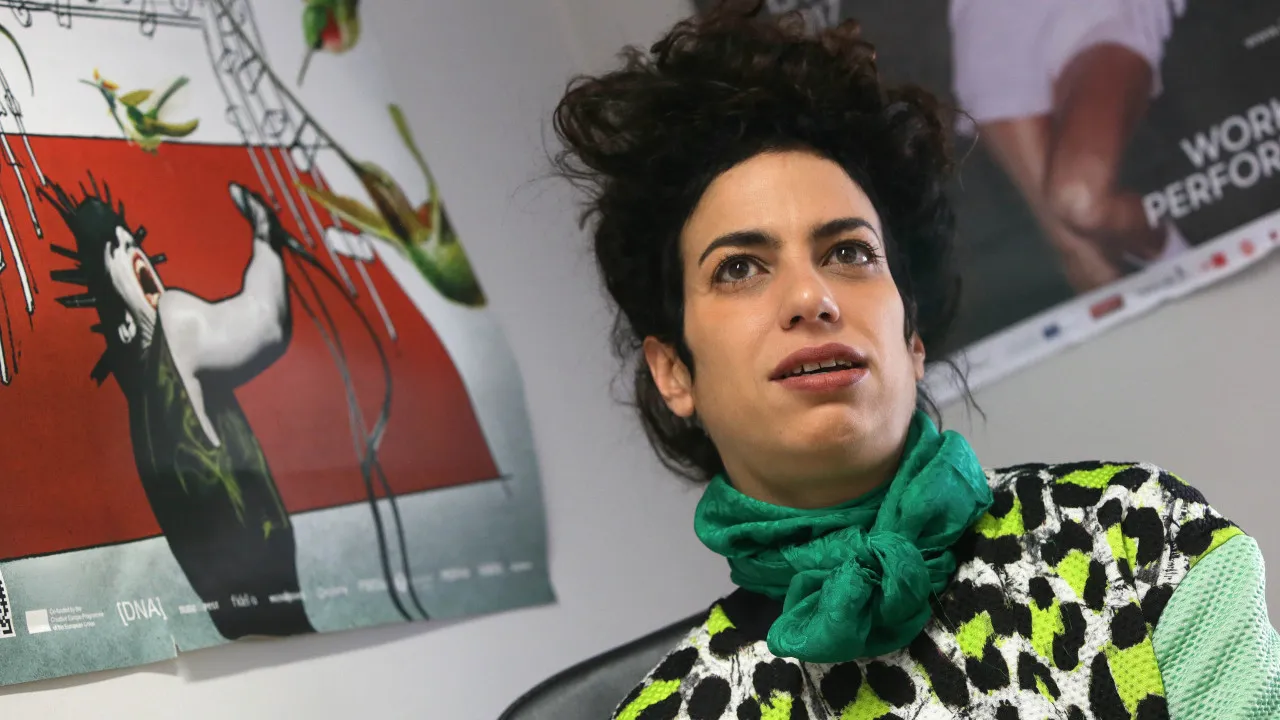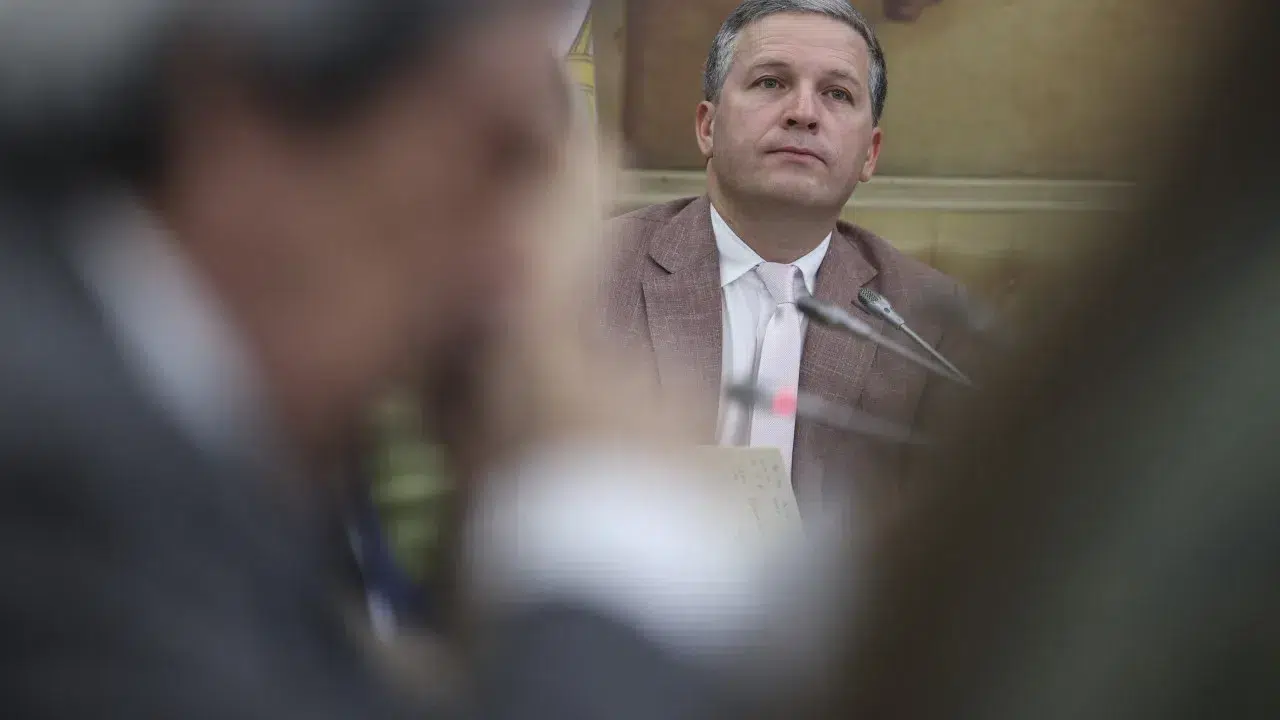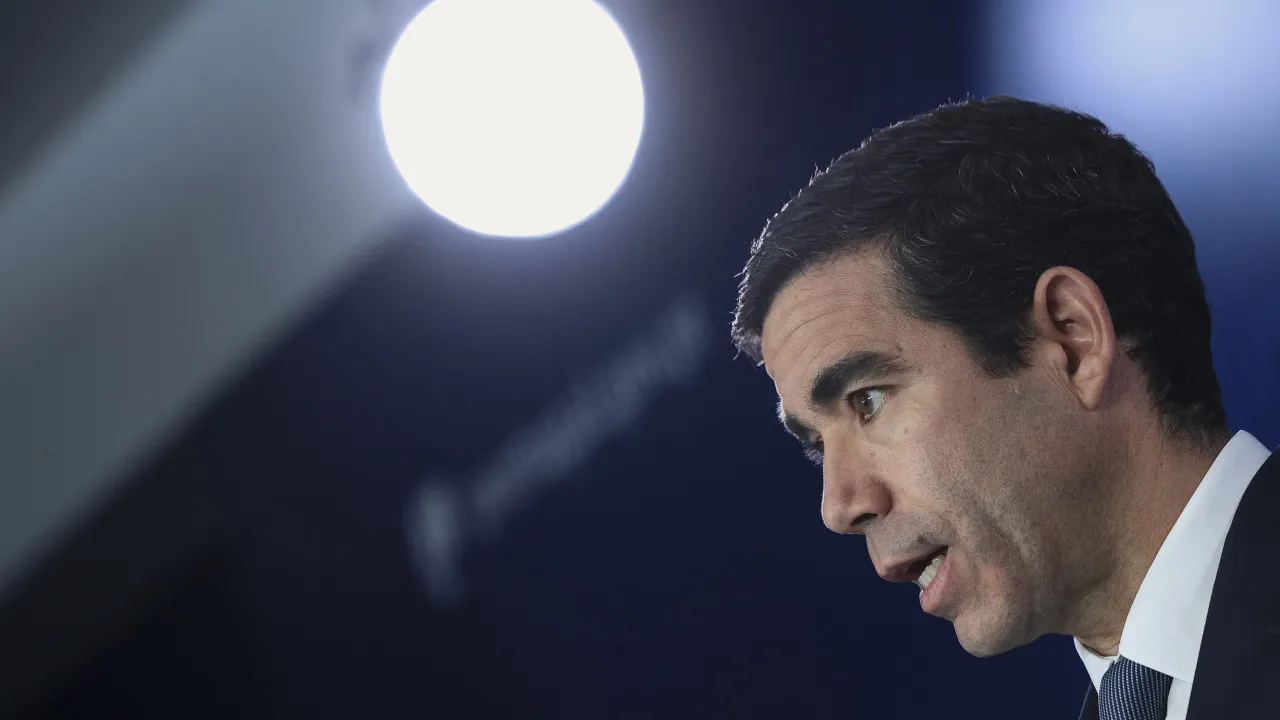
According to the French festival program, choreographer Marlene Monteiro Freitas, as a key artist of this edition, opens the schedule with “Nôt” at the Courtyard of Honor in the Palace of the Popes, with the performance running until the 11th.
Inspired by “One Thousand and One Nights,” a masterpiece of Arabic literature and the featured language of this edition, “Nôt” embodies the act of survival represented by the work.
“Rooted in oral tradition, these tales retain the energy of stories that constantly circulate and are always reinvented. The Cape Verdean choreographer translates this flow of words—intertwined, contradictory, incessant—into movement, transforming the stage into a space where vice and virtue, the grand and the small, desire and its shadow collide. […] ‘Nôt’ adds yet another night to infinity,” the description states.
Portuguese actor, director, and playwright Tiago Rodrigues, the festival’s artistic director, will premiere his new play “La distance,” one of the most anticipated events. The production will have 17 performances from the 7th to the 26th at L’Autre Scène du Grand Avignon.
Set in 2077, “La distance” unfolds as humanity struggles to survive amidst economic precariousness and the impacts of climate change, with some of the population exiled to Mars. Returning to Earth, as the synopsis reveals, a father strives to maintain a relationship with his daughter who moved to the Red Planet.
The show takes place in a “dystopian but not improbable setting,” in which Tiago Rodrigues “explores the consequences of our choices as well as the possibility of intergenerational communication.”
The playwright and director “places two worlds face to face and imagines their dialogue in orbit as a series of inter-urban connections.”
The roles will be performed by actors Adama Diop and Alison Dechamps, “in an interplanetary mechanism in rotation, like two celestial bodies caught in their path that draw closer and drift apart.”
“La distance,” performed in French with Portuguese subtitles and produced with the support of the Calouste Gulbenkian Foundation Paris, will start an international tour in Avignon, with co-producing structures including the Czech festival Divadlo, Bulgaria’s Plovdiv theater, Théâtre Vidy-Lausanne, Madrid’s Centro Dramático, and Barcelona’s Teatro Lliure, Athens’s Onassis Stegi, Milan’s Piccolo Teatro, alongside ten French stages and the Portuguese Culturgest.
In the Avignon lineup, “Le procès Pelicot,” a co-production between the Vienna and Avignon festivals, directed by Milo Rau, stands out as a tribute to Gisèle Pelicot, who was for years drugged, raped, and trafficked by her ex-husband Dominique Pelicot, sentenced to the maximum penalty last December, in a process that also convicted 50 other men.
The performance fulfills Gisèle’s declaration: “Shame must change sides.” With these words and her decision to make the trial public, Gisèle Pelicot became a symbol in the fight against violence towards women,” the synopsis of “Le procès Pelicot” describes.
“The case of Mazan’s rape shows how ordinary men of all ages and social classes were capable of committing an inhumane crime: the repeated rape of an unconscious woman in this small southern French town.”
“Le procès Pelicot,” scheduled for the 18th, offers “readings of interrogations, pleadings, and comments on the historic case,” based on an investigation involving “the Pelicot family lawyers, the court, psychology experts, stenographers, witnesses, and feminist associations, to depict the judgment of a system: patriarchy.”
“Le procès Pelicot,” which shocked Austrian audiences in a preview in Vienna in May, will be presented on the 18th at Cloître des Carmes in Avignon.
Another staging by Milo Rau, also a recurring name at the Almada Festival, “La lettre,” will be presented from July 8 to 26. The play draws from the family stories of young artists to explore events that change the course of one’s life and, according to the program, “is a manifesto of what popular theater can be today.”
The dance section features the Portuguese production “Coin Operated” by the duo Jonas & Lander, produced by Sinistra Cultural Association with BoCA—Biennial of Contemporary Arts, from July 8 to 12.
Particularly notable in dance is the Franco-Belgian production “Brel,” where choreographers Anne Teresa De Keersmaeker and Solal Mariotte draw on the songs of Jacques Brel “in an intense duo, inspired by the poetry, gestures, and expressiveness of the Belgian artist.” It will run from July 6 to 20.
Spanning dance, music, singing, and theater, the opera “Les incrédules” by French director Samuel Achache will be presented from July 22 to 25 at the Grande Opera d’Avignon.
“Les incrédules,” where the director merges actors, singers, and a 52-piece orchestra, is a show “where the improbable intersects with the tragic,” according to its presentation. Achache presented “Sans tambour” at last year’s Almada Festival with the Théâtre des Bouffes du Nord & La Souder.
Singer Mayra Andrade will bring the concert “reEncanto” to the Courtyard of Honor in the Palace of the Popes on the 12th, and DJ and producer Branko (João Barbosa) will headline the festival’s closing concert on the 26th at La FabricA.
Overall, Avignon this year includes 300 shows of 42 productions, with 32 premieres. The program is “rigorously gender-balanced,” as stated by artistic director Tiago Rodrigues at the program announcement in early April.
The German director Thomas Ostermeier, featuring at the Almada Festival with “History of Violence” by Édouard Louis, and “The Wild Duck” by Ibsen in Avignon; Swiss Christoph Marthaler with “Le Sommet,” his new work; “The Satin Slipper” by Paul Claudel, directed by Comédie-Française director Eric Rufe; and a revisit of the “radical dramaturgy” of François Tanguy’s Théâtre du Radeau (1958-2022) are other proposals of the Avignon program.
At the festival announcement this year, Tiago Rodrigues emphasized that “more than half of the artists [58%] are participating for the first time,” citing Danish choreographer Mette Ingvartsen with “Delirious Night” and multidisciplinary Albanian artist Mario Banushi with “Mami” as examples.
On Friday, the 4th, Avignon will host a pre-presentation of “Nôt” by Marlene Monteiro Freitas and “They Always Come Back” by Moroccan choreographer Bouchra Ouizguen, for local residents and educational, social, and medical-social organizations.




